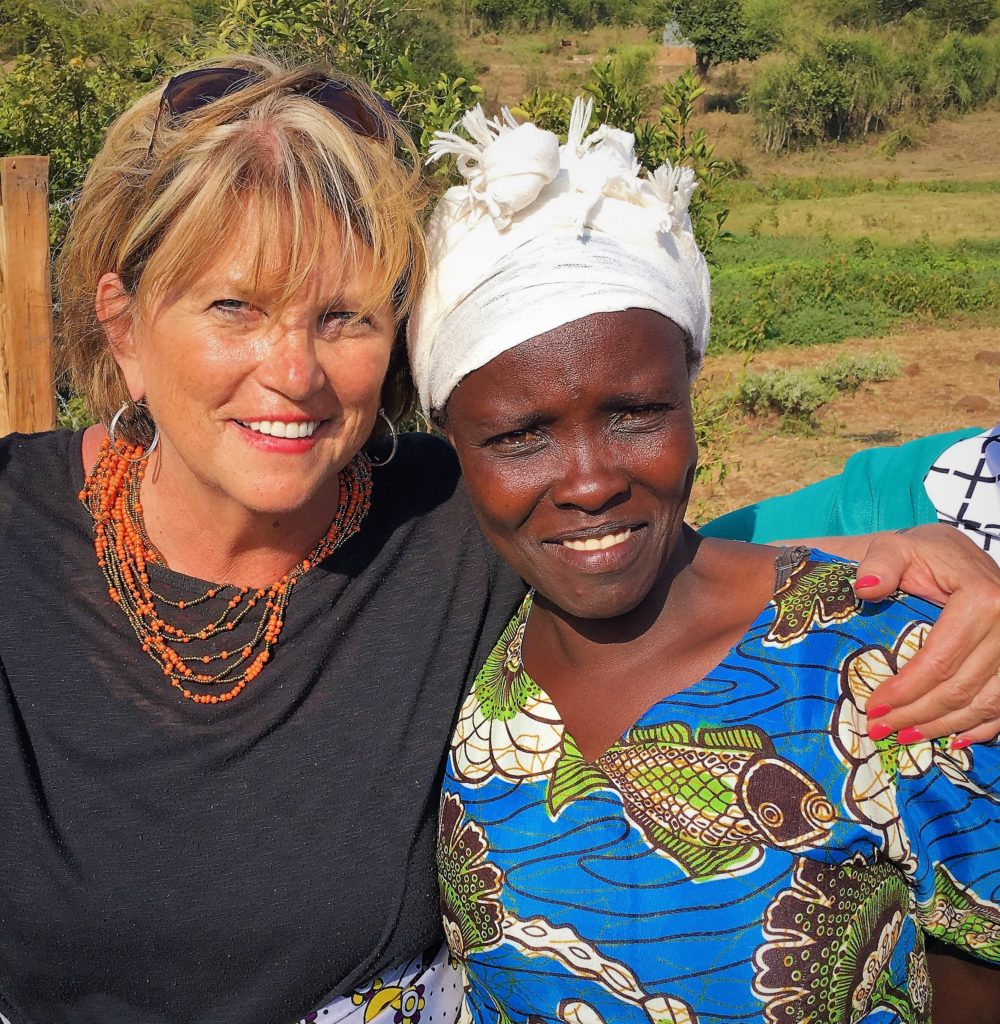
photo by Paul Higdon
Every day when I leave the house, I sling a Kenyan kiondo (sisal purse) over my shoulder. I bought it fifteen years ago from a Kenyan weaver (after some rather aggressive bargaining). It still looks brand new, a testimony to her craftsmanship. The size is perfect for my lifestyle—I can haul my laptop, keys, makeup, brush, wallet, planner, scarf, shoes, swimsuit…well, you get the picture.
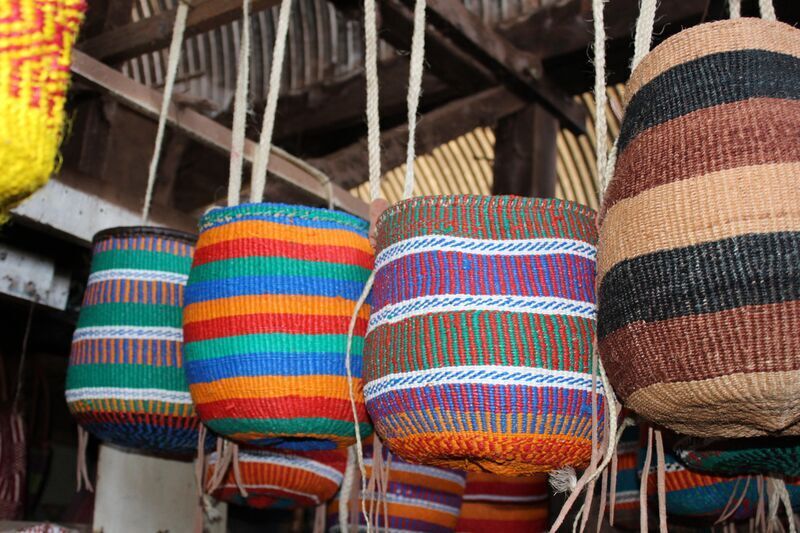
Line-up of handwoven kiondos at a women’s marketplace near Nairobi. (Photo by Linda Higdon)
Beyond its sheer practicality, I love knowing that I own a piece of “living tradition” preserved by my Kenyan sisters. For generations women in villages have been weaving. Through oral traditions, mother pass along to daughters the secrets of creating beauty from the most unexpected local materials—sisal, banana and palm leaves, hyacinth, and even recycled plastic shopping bags.
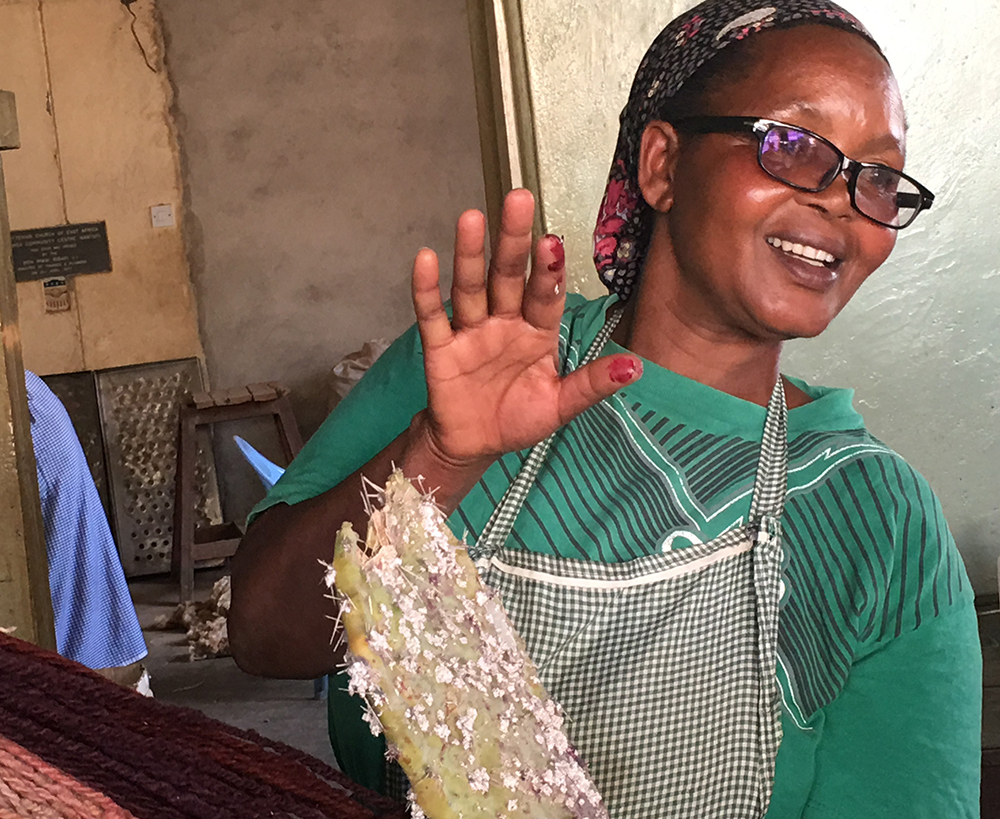
This weaver shows the blood of cactus parasite on her fingers, used for natural dyes (Photo by Linda Higdon)
Dyes are distilled from local wild flowers, unseemly weeds, and even parasites nesting on cactus spines. Kenyan are considered a national treasure for their elegant baskets and purses. Their claim to global fame began in 1985 when the UN Women’s Conference was held in Nairobi.
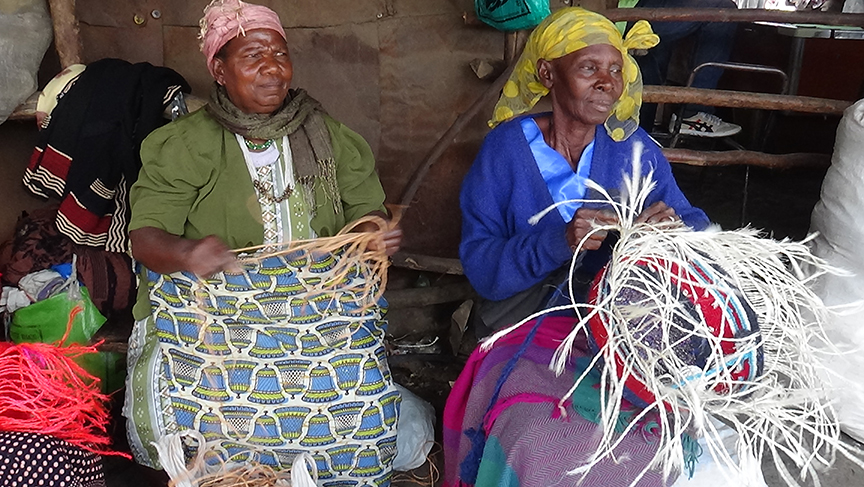
Machakos Weavers preserve a living legacy of basket weaving to this day. The art is considered a national treasure in Kenya. (Photo by Linda Higdon)
Weavers across Kenya showcased their baskets which caught the eyes of foreign participants. The weavers from one particular market called Machakos were best positioned to take advantage of the new-found attention, living only one hour from Nairobi. Right time, right place!
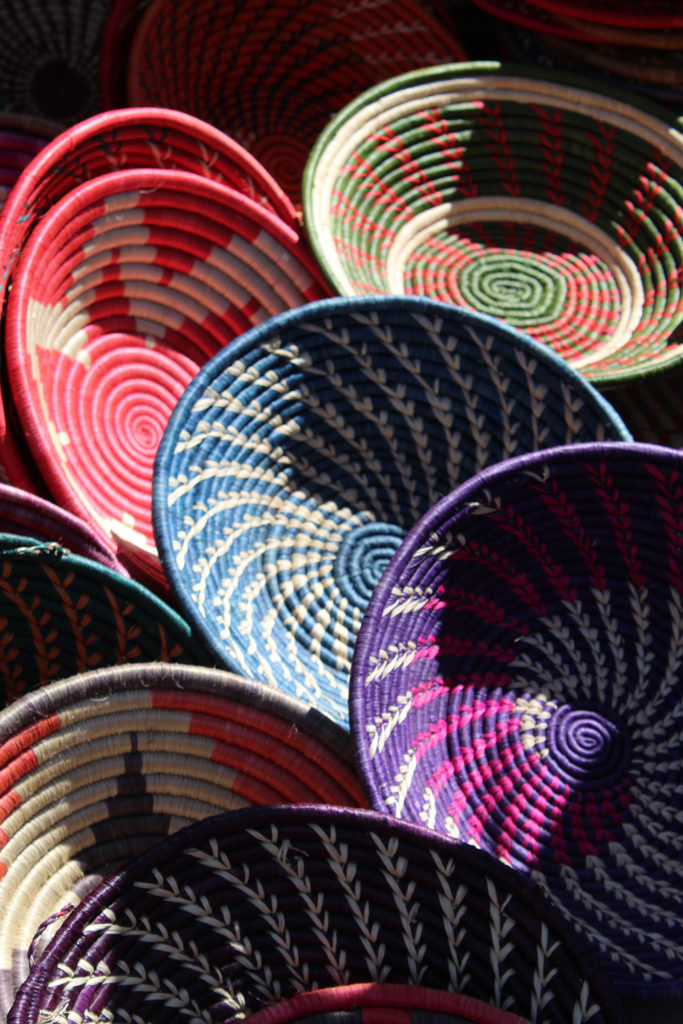
These tightly woven baskets are designed for functional beauty. (Photo by Linda Higdon)
How romantic it would be to think that women weave their artistry leisurely sharing tales of life and love. Truth is though that these women do not waste a minute of their days. Most are farmers working the fields to raise their families. Often, they weave alone or in small groups. That is until the dry season hits and crops become sparse. Then they weave for survival. Tiny profits go to put food on the table and pay for school fees, uniforms, and books. If they don’t sell, they don’t eat and kids miss school.
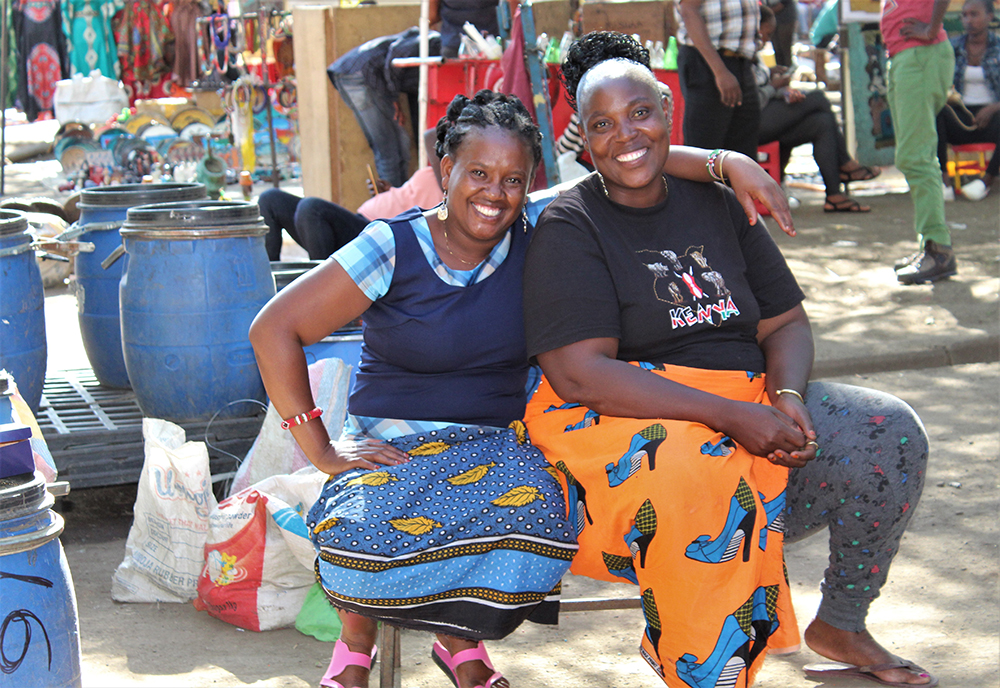
Women from the Kamba tribe selling their craft at a busy artisan marketplace
Machakos weavers are from the Kamba tribe occupying an expanse of farmland between Nairobi and the port of Mombasa. Tradition holds that Kamba women are expected to have a kiondo at the time of marriage, for shopping and at special events. Women “eye” one another’s kiondos for status – is she a Christian Dior or Coach bag kind of gal?
